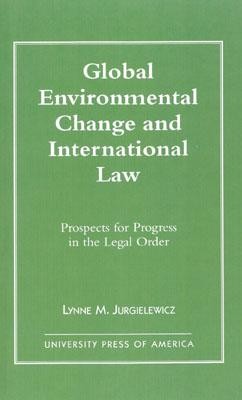
- We will send in 10–14 business days.
- Author: Lynne M Jurgielewicz
- Publisher: University Press of America
- ISBN-10: 0761802851
- ISBN-13: 9780761802853
- Format: 14 x 21.6 x 1.7 cm, softcover
- Language: English
- SAVE -10% with code: EXTRA
Global Environmental Change and International Law (e-book) (used book) | bookbook.eu
Reviews
Description
This is one of the few books dealing with regime theory to be written from a legal point of view. Jurgielewicz's book is part of an effort to promote interdisciplinary research on the nature of the international legal order. Her work explores the concept of international regimes within the international legal order, utilizing the policy-oriented approach to international law. The study uses examples of global environmental change as models. By examining the general international law applicable to climate change and ozone layer depletion, the author attempts to explain the original need for regime formation in these areas. Next, Jurgielewicz looks at the role of regimes within international law, focusing on their formation, maintenance, source of legal obligation, and compliance mechanisms. The book concludes that regimes are present within the international legal order and play a vital role in maintaining that order. This book will appeal to students in law schools, graduate schools, or advanced undergraduate seminars covering international relations, international legal theory, international law, and international organizations.
EXTRA 10 % discount with code: EXTRA
The promotion ends in 8d.10:45:21
The discount code is valid when purchasing from 10 €. Discounts do not stack.
- Author: Lynne M Jurgielewicz
- Publisher: University Press of America
- ISBN-10: 0761802851
- ISBN-13: 9780761802853
- Format: 14 x 21.6 x 1.7 cm, softcover
- Language: English English
This is one of the few books dealing with regime theory to be written from a legal point of view. Jurgielewicz's book is part of an effort to promote interdisciplinary research on the nature of the international legal order. Her work explores the concept of international regimes within the international legal order, utilizing the policy-oriented approach to international law. The study uses examples of global environmental change as models. By examining the general international law applicable to climate change and ozone layer depletion, the author attempts to explain the original need for regime formation in these areas. Next, Jurgielewicz looks at the role of regimes within international law, focusing on their formation, maintenance, source of legal obligation, and compliance mechanisms. The book concludes that regimes are present within the international legal order and play a vital role in maintaining that order. This book will appeal to students in law schools, graduate schools, or advanced undergraduate seminars covering international relations, international legal theory, international law, and international organizations.


Reviews